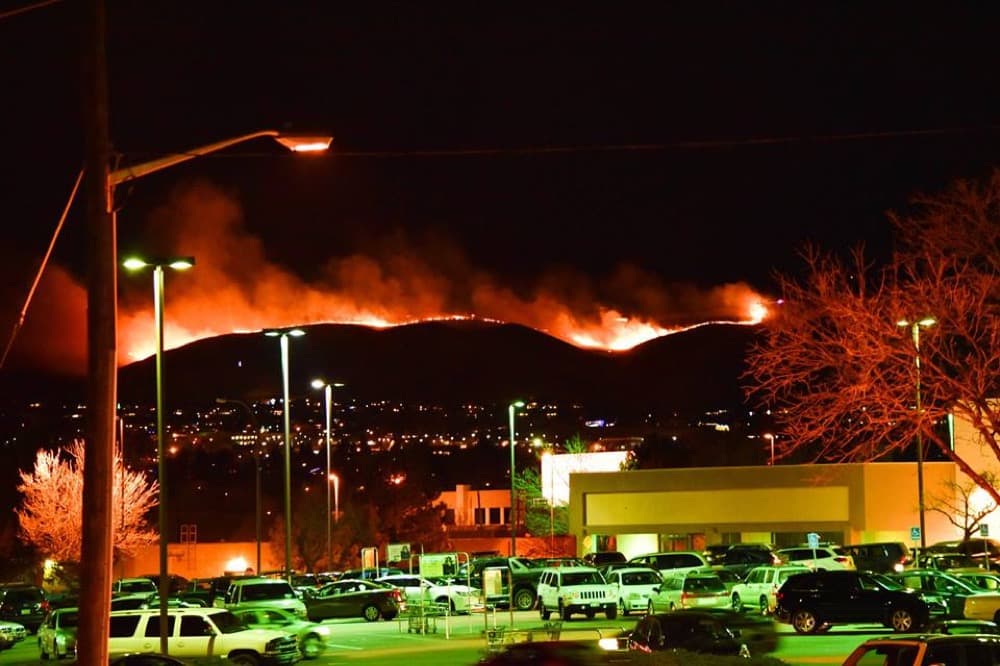
By Dan Elliott, Associated Press
Colorado can expect an average to slightly below-average wildfire season this year, despite dry conditions and early outbreaks on the eastern plains, officials said Friday.
"But the fires will occur," said Michael Morgan, the director of state Division of Fire Prevention and Control.
An average season in Colorado is about 45 wildfires burning a total of 160 square miles (415 square kilometers), Morgan said.
The outlook is based on expected weather patterns and fuel — the trees, grass, shrubs and other vegetation that can burn if a fire gets out of hand.
Most of the plains have been in a drought or near-drought conditions since mid-October. Last month, a wildfire in northeastern Colorado blackened 50 square miles (129 square kilometers) and killed 200 cattle.
But the mountains received heavy winter snowfall after a slow start. Most of the high country had average or above-average snowpack as of Friday.
Gov. John Hickenlooper, who appeared with Morgan for a briefing at the state Capitol in Denver, said Colorado averages four times as many wildfires as it did 15 years ago. He blamed climate change, which he said has lengthened the fire season by about 80 days.
"It's no wonder that we're having more fires," said Hickenlooper, a Democrat.
Hickenlooper and Morgan said the state has set a goal of reducing the number of fires by 5 percent this year and 10 percent by 2019.
Only about 7 percent of the state's 2016 wildfires had natural causes, Morgan said. The rest were started by debris fires, campfires, prescribed burns, arson, mechanical failures or other causes, he said.
The state has adopted an aggressive tactic of monitoring for wildfires when conditions are dangerous and attacking them quickly, from the air if necessary, when they are reported.
Two years ago, the state rolled out two newly acquired aircraft equipped with infrared cameras, which officials said were so sensitive that one detected a campfire from 28,000 feet (8534 meters) in the air.
Morgan said the aircraft detected 43 fires last year that were so remote no one else had reported them.
Hickenlooper said Colorado is ready for fires and said he doubted any Western state other than California equaled the state in preparedness.
"Our preparedness is well beyond any of our contiguous neighbors," he said.













